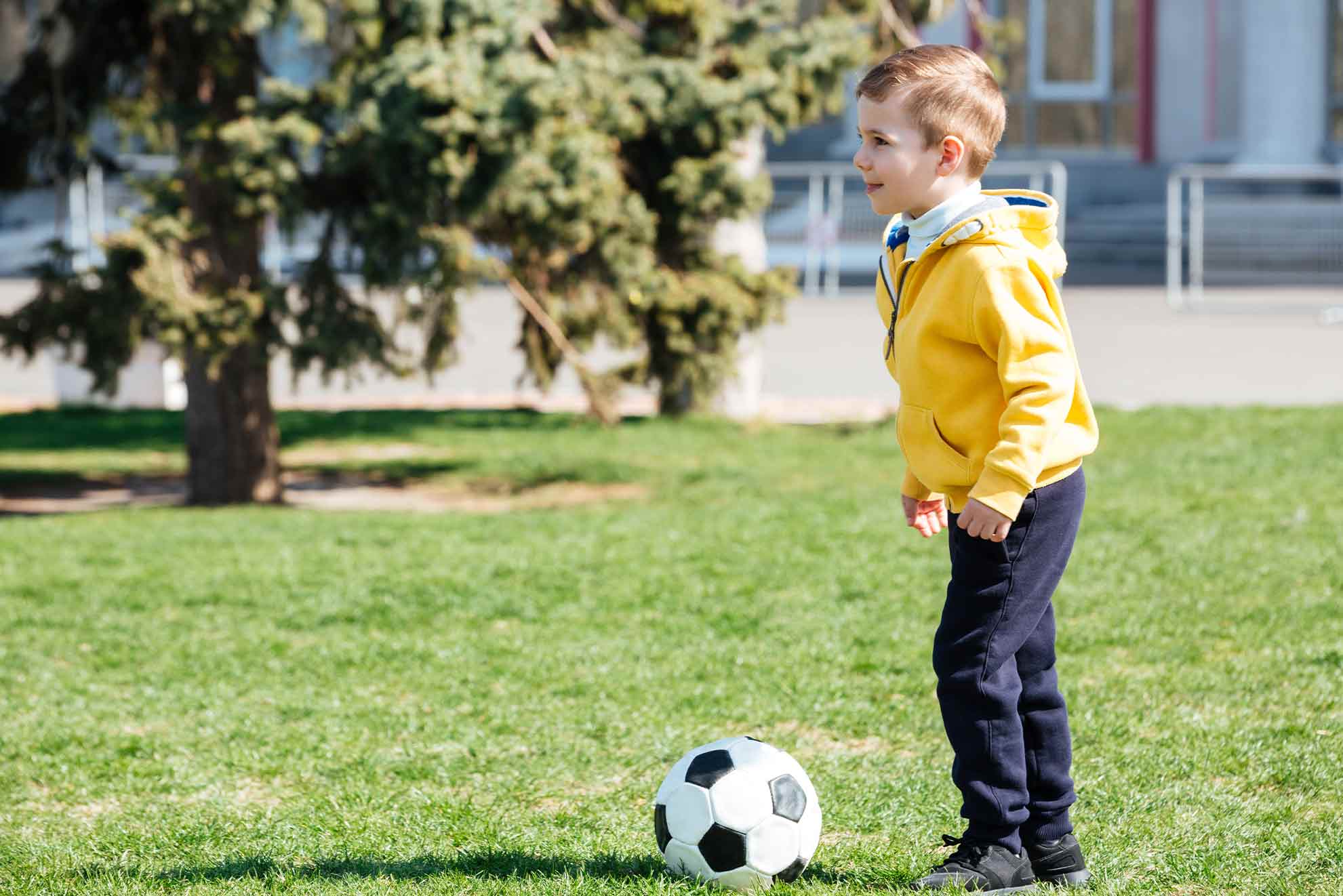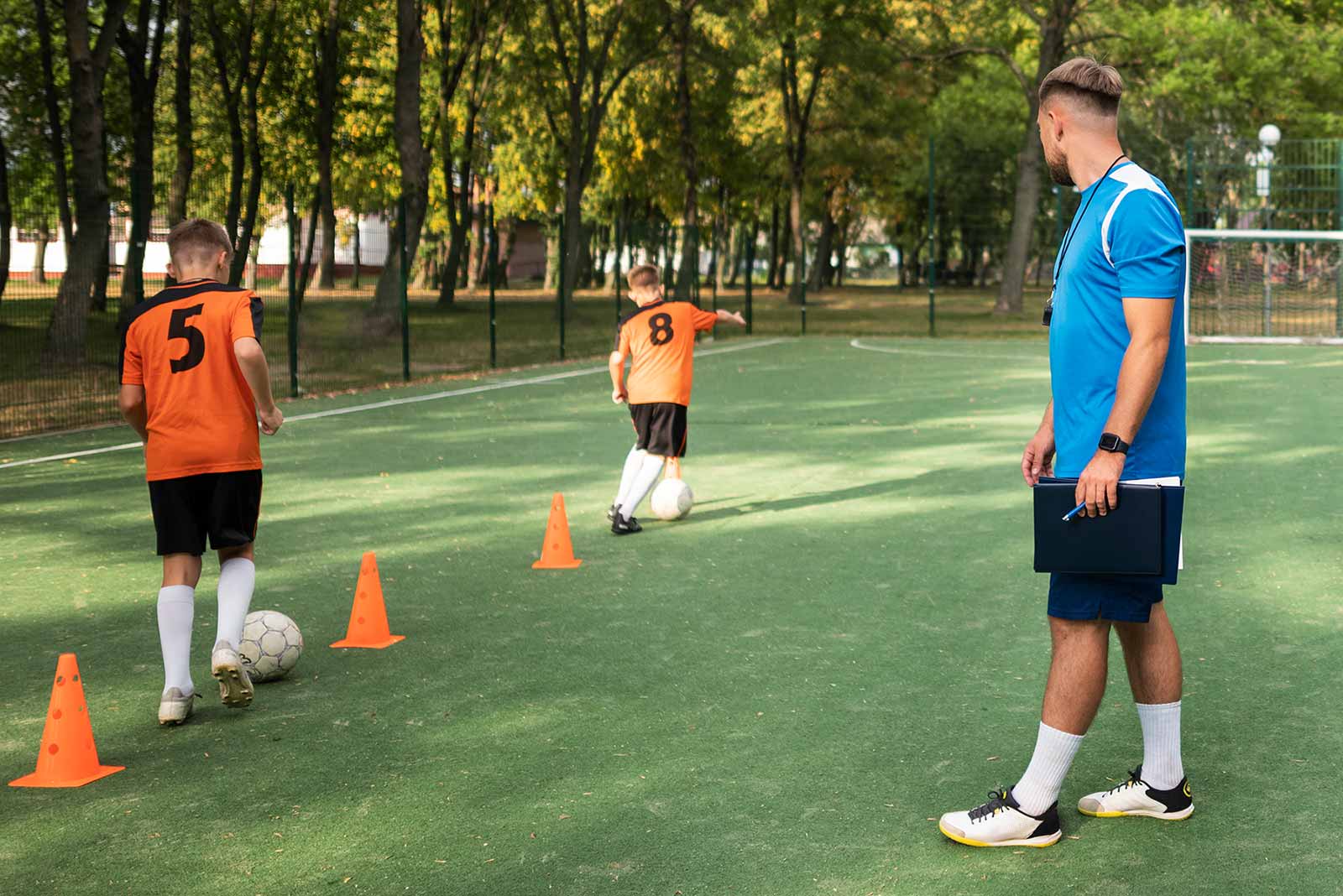Why Soccer Camps are Great Options for School Holidays

CRFC BLOGS
LATEST BLOGS & NEWSLETTERS
Why Soccer Camps are Great Options for School Holidays
The school holidays present a unique opportunity for children to engage in activities that enrich their lives beyond the classroom. While there are countless ways to occupy their time, participating in sports, specifically through soccer camps, stands out as a particularly beneficial option. Soccer camps not only keep children active but also teach them valuable life skills. Physically, they promote endurance, agility, and coordination. Mentally, they teach discipline, focus, and strategic thinking. Socially, they encourage teamwork, communication, and leadership. The benefits of soccer camps extend far beyond the pitch, impacting children’s academic performance and interpersonal relationships.

Key Advantages of Soccer Camps During School Holidays
Structured Physical Activity
Skill Development and Enhancement

Teamwork and Social Skills

Fun and Enjoyment
Types of Soccer Camps
Winter Camps
Winter Camps provide an opportunity for players to stay active and continue their soccer development during the colder months. These camps focus on maintaining physical fitness and honing soccer skills in an indoor setting.
Spring Camps
Spring Camps are aimed at getting players ready for the upcoming season. They emphasize skill development, team play, and tactical understanding, preparing players for competitive play. Enroll your kids in our spring camp.
Summer Camps
Summer camps offer professional coaching in a fun and engaging environment. They’re designed to improve soccer techniques, ball mastery, and physical conditioning, while also promoting teamwork and social skills. You can get professional training at all of our youth summer camps.
Fall Camps
Fall camps focus on preparing players for the competitive season ahead. These sessions concentrate on refining technical skills, enhancing physical fitness, and fostering team cohesion, all within the crisp autumn setting. It’s an ideal time for players to fine-tune their abilities and build momentum for upcoming matches.
Aims of Different Soccer Camps
Skill Development
Some soccer camps emphasize improving individual skills, techniques, and physical conditioning. These are ideal for players looking to enhance their abilities in specific areas.

Competitive Play
Soccer Camps focused on competitive play, including tactics, game intelligence, and match situations, are best suited for advanced players looking to refine their game sense and competitiveness.
Recreational Activity
For younger players or those looking for a fun introduction to soccer, camps that balance skill development with recreational activities might be the best fit.
Factors to Consider When Selecting a Soccer Camp
Choosing the right soccer camp for yourself or your child involves more than just picking a name. It’s about finding a program that aligns with the player’s current skill level, goals, and personal comfort. Here are several key factors to consider that can help ensure the chosen camp provides the best possible experience and growth opportunity.
Location
The Charlotte Rise FC soccer camp’s location can significantly impact the decision-making process. Proximity to home may be crucial for younger players or those not comfortable being far from home. Conversely, a camp further away might offer a unique experience or specialized training worth the travel.
Facilities
Consider the quality and type of facilities where the camp is held. Top-notch fields, training equipment, and accommodation (for residential camps) can enhance the experience.
Duration
Soccer camps can vary in length from a few days to several weeks. Short-term camps might focus on general skills and fun, suitable for beginners or younger players. In contrast, long-term camps offer more in-depth training and development, better suited for serious players looking to improve significantly.
Coaching Qualifications
The quality of coaching is perhaps the most critical factor. Look for camps with experienced, certified coaches who have a track record of developing players. At CRFC soccer summer camps, players benefit from experienced, certified coaches who focus on individual and team growth.
Coaching Philosophy
The coach’s approach to teaching and the game can greatly affect a player’s experience and development. Ensure their philosophy aligns with the player’s goals and learning style.
Conclusion
Soccer camps offer a unique opportunity for children to stay active, develop skills, and enjoy themselves during school holidays. The combination of physical activity, personal development, and fun makes soccer camps an attractive option for parents looking to enrich their children’s lives. By choosing the right camp and preparing their child for the experience, parents can ensure a rewarding and memorable holiday for their young athletes.
FAQs
What are the core benefits of enrolling my child in a youth soccer camp during school holidays?
Youth soccer camps provide a comprehensive environment for physical, social, and personal development. They encourage proactive thinking, perseverance, and sportsmanship, fostering an atmosphere where children can develop a unique understanding of spatial awareness and quick thinking. These camps offer structured training, teamwork, and competition in a supportive environment.
How do youth soccer camps facilitate personal growth and teamwork?
Soccer camps are about more than just playing the game; they’re about building character, discipline, and teamwork. Through daily practice and interactions, children learn the importance of working together towards a common goal, developing strategies on the field without direct adult intervention, and forming strong bonds with teammates that can last a lifetime.
What kind of training and activities do youth soccer camps offer?
Youth soccer camps offer a blend of technical, tactical, and physical training tailored to various skill levels, from beginners to more advanced players. Activities are designed to be fun and engaging, teaching children the values of teamwork, respect, and discipline. Camps may include competitive games, skill-building drills, and even off-field educational sessions.
Are there any specific programs for goalkeepers or players looking to improve certain skills?
Many soccer camps offer specialized programs for goalkeepers or players focusing on specific aspects of their game. These programs aim to improve technical skills, understanding of the game, and physical conditioning specific to their roles on the field.
How do youth soccer camps handle team dynamics and individual player development?
Soccer camps provide an ideal setting for teams to bond and for individual players to shine. Through team-based activities and challenges, players learn to trust and rely on each other, fostering a sense of unity and teamwork. Individual development is also a key focus, with personalized feedback and coaching helping each player to improve.

Did you find this useful?


